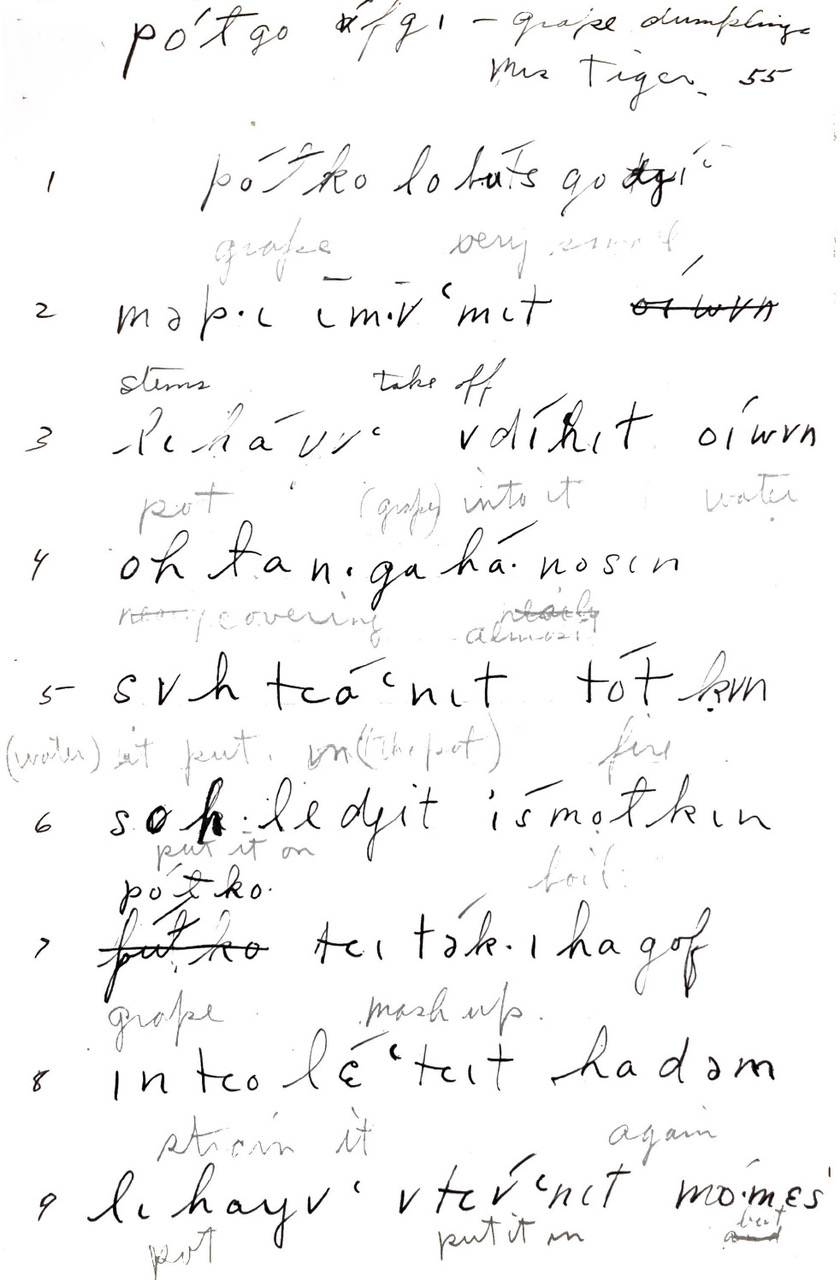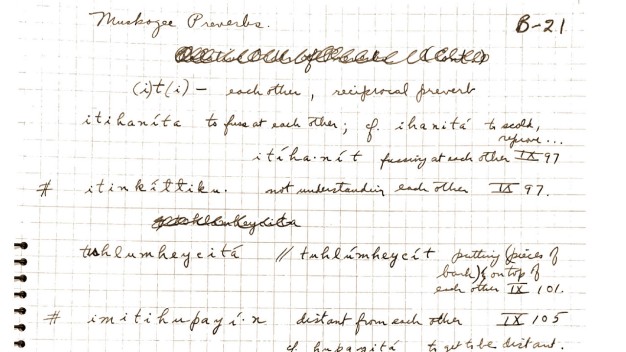A Historian’s Introduction to Linguistics at the American Philosophical Society
As a historian of Early America and the Native Southeast, I applied for a Short Term David Center Fellowship at the American Philosophical Society to comb the multitude of sources in the British Colonial Office CO 5 records and Panton, Leslie & Company papers. My research focuses on how the Muscogee (Creek) language influenced the making and maintenance of Muscogee sovereignty in the 18th and 19th centuries. Research for the early years of my dissertation’s time period poses a particular challenge as I attempt to write about language-use before it was recorded in written form. But to my surprise, the APS collections and community offered a wealth of information about the field of linguistics that has complicated my understanding about how to write a history of a language and its people.
Every few days during my month at the APS I took breaks from the microfilm machine to peruse the Mary Rosamond Haas papers, which is a collection of correspondence, scholarly writings, and Indigenous language translations from a mid-20th-century linguist. Haas was not unfamiliar to me—I had been introduced to her Muscogee (spelled Mvskoke in the language) translations from my own language studies at the University of Oklahoma. My instructor (or mvhayv) Melanie Frye even included Haas’s translations in her lectures on Muscogee culture. Melanie and I were both excited to see some of Haas’s unpublished notes at the APS, particularly the traditional Muscogee recipes Haas transcribed in the language.

When I discussed my research at an APS Brown Bag presentation toward the end of my fellowship, I realized just how special and diverse the scholarly community at the APS is. I presented an early explanation of how I might apply the language knowledge I learned from the Mary Rosamond Haas papers and my instructor to the eighteenth-century sources I was reading from the David Center. To my surprise, several of the archivists and scholars at the APS had backgrounds in linguistics and encouraged me to consider questions such as: What was Haas’s theoretical background, and how might that have affected her translation work? Does language influence or determine thought? Does language shape identity? These questions might seem rudimentary to scholars of linguistics, but to a historian who stumbled her way into a new field, they are invaluable. Many thanks to everyone in the APS community for their warm welcome and the much-needed crash course in linguistics!

